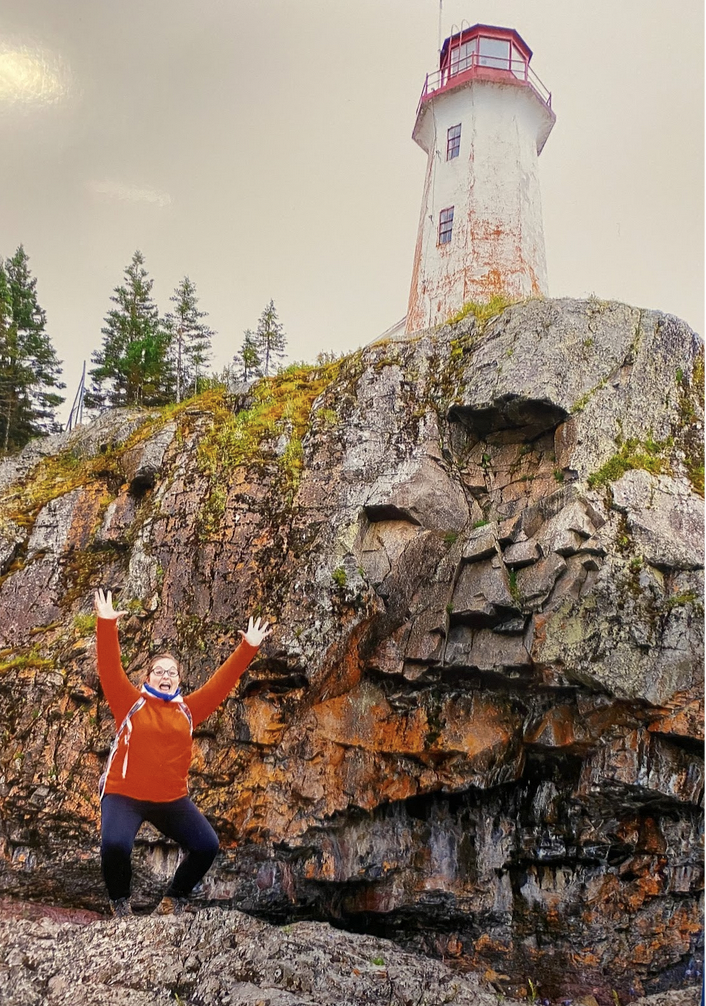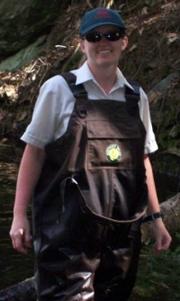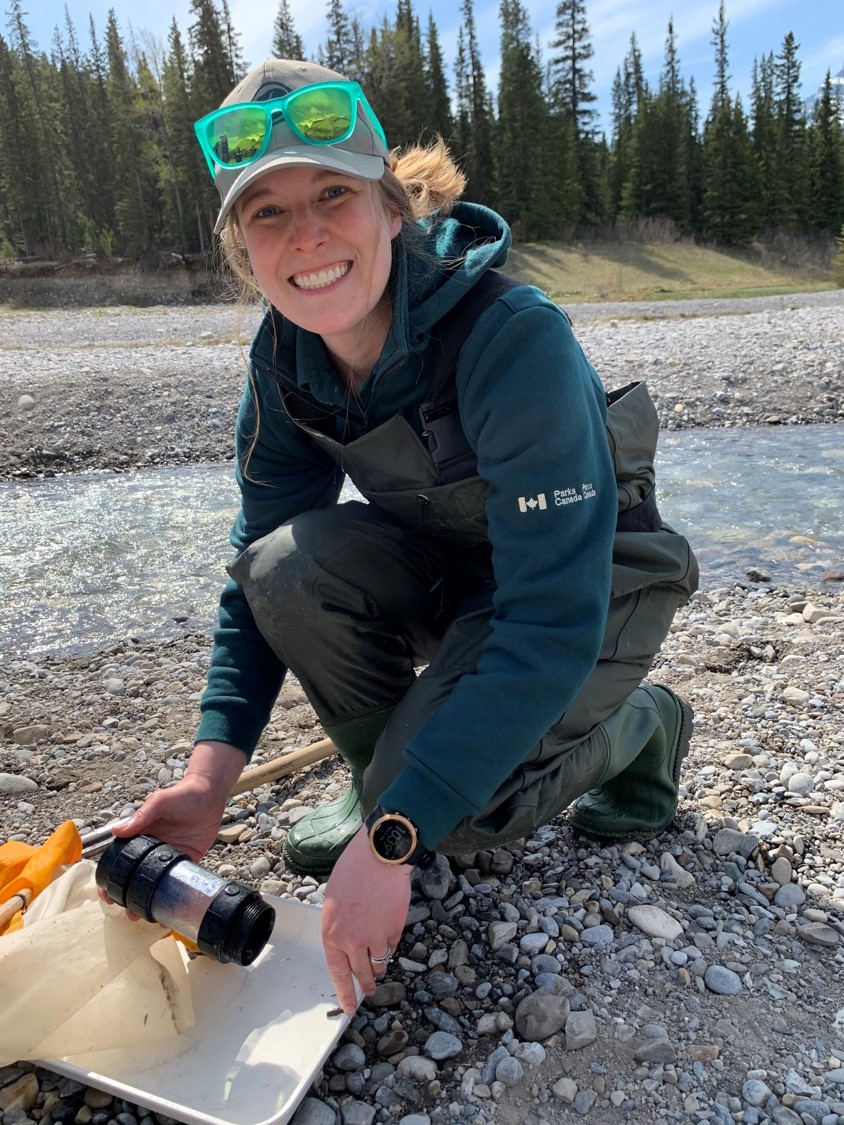Heritage Interpreters
Heritage Interpretation involves developing programs to reveal the amazing natural and cultural features of an area to visitors that result in a deep appreciation and connection to the land and its peoples. Learning heritage interpretation skills through the School of Outdoor Recreation, Parks & Tourism opens doors to becoming a professional Heritage Interpreter, like these alumni!
Kara (Haugseth) Partridge
HBOR/BA 2011Kara graduated from ORPT in 2011 with a specialization in Leadership, and a concurrent BA in Psychology. She went on to get a MSc in Outdoor Education from the University of Edinburgh. She is currently working for Parks Canada as an Interpretation Coordinator in Banff National Park! "It really is a dream job, and I get to do lots of program planning, hiring, supervising the front-line interpretation team, and working on the ground in the summer connecting with visitors about human/ wildlife coexistence, aquatic conservation, and many other fun and interesting topics."
Kara says, "My time in ORPT set me up for success in both my master's degree, and my current role in a number of ways. The experiential nature of the program and focus on leadership let me practice my communication skills and put theory into practice when working with groups of all ages in the field. The academic courses including programming, experiential education, group dynamics, ecological literacy, and therapeutic recreation provided me with a thirst for knowledge in the research community of outdoor/ environmental education, and the ability to create programs and experiences that leave an impact on visitors. My passion is to help others connect with the outdoors in meaningful ways (both for their benefit and the planet's!), and ORPT gave me the perfect foundation to do just that."

Sarah (Shruiff) Rauh
HBOR/BEd, 2015
After completing ORPT, I went on to teachers college to become an Ontario Certified Teacher. Then, I began working as a student for Parks Canada at Lake Superior National Marine Conservation area where I now work full time as an Interpretation Officer/Coordinator.
Advice for students: No matter where you go, there will always be people that you will not get along with or do not work well with. One of the most important teachings in ORPT is group dynamics and conflict resolution. ORPT gives us the tools to become better leaders, team players, and human beings. So, take advantage of those opportunities to work with people you may not know or even like. For it is those situations that will make you a better person and give you an advantage later on in life.
Jennifer Bond
HBOR/ BSc (specialization in Parks) 2004, MES-NBR 2006
 In 2004, I graduated from the School of Outdoor Recreation, Parks and Tourism with an Honours Bachelor of Outdoor Recreation (specialization in Parks), and a Bachelor of Science in Natural Sciences. In 2006, I graduated with a Master of Environmental Studies in Nature-Based Recreation and Tourism. My thesis focused on whitewater paddlers in Lake Louise, Yoho, and Kootenay National Parks.
In 2004, I graduated from the School of Outdoor Recreation, Parks and Tourism with an Honours Bachelor of Outdoor Recreation (specialization in Parks), and a Bachelor of Science in Natural Sciences. In 2006, I graduated with a Master of Environmental Studies in Nature-Based Recreation and Tourism. My thesis focused on whitewater paddlers in Lake Louise, Yoho, and Kootenay National Parks.
That same year, I joined the interpretation team at St. Lawrence Islands National Park (SLINP), in Brockville, Ontario. SLINP is Canada's third smallest National Park, but it is one of the most diverse. We occupy only about 22 square kilometres, but we are stretched over 80 kilometres of the St. Lawrence River, in the heavily impacted region of Southern Ontario. Because of our small size, one of our major strategies is outreach and interpretation to create partnerships with local residents and visitors from farther away to create an awareness and interest in the region and its care.
The skills I learned while in ORPT have been essential to my success in my chosen field – one that I am enjoying every day.
Currently, I am a Park Interpreter based out of the Interpretation Centre in Mallorytown Landing. I am one of two primary interpreters at the Centre responsible for all the programs, displays, and exhibits at the Centre.
The ORPT program, its courses and opportunities (such as the exchange program to Charles Stuart University in New South Wales, Australia) gave me a great foundation in interpretation, environmental issues, and the natural environment.


